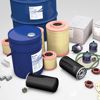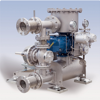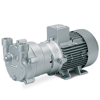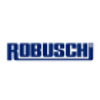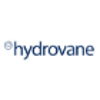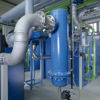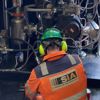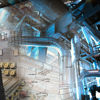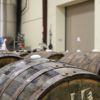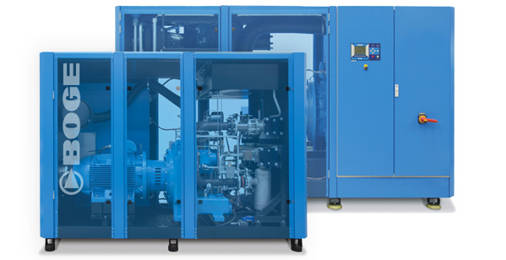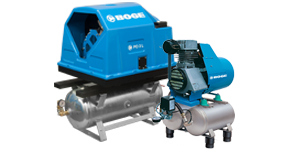
Are you looking for information on oil free air compressors? Learn all about the different kinds of oilless compressors, their benefits, and limitations, in our detailed guide. At SIA we are passionate about making sure you get the right compressor for your needs.
Let's begin with:
What are oil free air compressors?
An oil-free air compressor is a unique type of air compressor that operates without the need for oil lubrication in the compression chamber.
Unlike traditional air compressors that rely on oil for lubrication to reduce friction and extend the compressor's lifespan, oil free air compressors are engineered with special materials (such as graphite, Teflon, and composites). These special coatings and advanced sealing systems combined with precision engineered parts help to reduce friction and heat generation, eliminating the need for oil in the compression process. In addition, cooling systems often rely on air or water, making them safer for the environment.
Oilless compressors are commonly chosen for applications where air quality is of utmost importance, providing Class Zero air quality certified to ISO 8573.1 quality standards.
At SIA Compressors & Generators, we offer a comprehensive range of oil-free compressors from CompAir & BOGE, including the D Series, DH Series, DX Series, EO Series, S Series, SO Series, and Ultima Series.
What are the benefits of oilless air compressors?
- Cleaner Air: Oil-free compressors produce compressed air that is entirely free from oil contaminants and also silicon-free. This makes them ideal for critical applications in industries such as pharmaceuticals, food and beverage, electronics, and medicine, where oil-free air quality is essential.
- Lower Maintenance Costs: Oil-free air compressors require lower maintenance compared to their oil-lubricated counterparts. With no oil within the compression stage or oil filters, reducing the requirement for downstream filtration and possible energy loss caused by pressure drop.
- Reduced Environmental Impact: With no oil used for compression, there is no risk of oil contamination in the compressed air. This not only benefits the environment but also safeguards the quality of end products, particularly in the aforementioned
- Legal Compliance: With specific applications requiring oil-free and contamination-free compressed air, this is achieved when using oil-free air compressors in association with the correct filtration/drying equipment, thus fully maintaining your quality requirements and legal standards, providing you with peace of mind that you fully comply to any required specification and standards.
What are the limitations of oilless air compressors?
- Higher Initial Cost: While savings can be realized over time, the initial cost of an oil-free air compressor is generally higher than that of an oil-lubricated air compressor with similar capacity. However, reducing downstream filtration and the prevention of oil-related contamination shall offset this initial cost.
- Shorter Lifespan: In heavy-duty industries, oil-free air compressors may have a shorter lifespan compared to their lubricated counterparts, although this largely depends on the specific application.
-
Noise Levels: Oil-free air compressors tend to operate louder than oil-lubricated models due to the absence of oil damping and increased mechanical friction. This can be a concern in noise-sensitive environments unless mitigated by acoustic enclosures or quieter compressor designs.
What kind of oil-free air compressors do SIA provide?
When considering the purchase of a new air compressor, whether it's an oil-free or oil-lubricated model, the primary factor to assess is the requirements of your application. At SIA Compressors & Generators, our compressed air experts are ready to assist you in finding the best option to meet your air purity needs, budget constraints, and application demands.
For more information on our extensive range of compressed air solutions, please don't hesitate to contact our team today.
FAQs About Oil Free Air Compressors
What is the life expectancy of an oilless air compressor?
The life expectancy of an oil free air compressor typically ranges from 5 to 15 years, depending on the type of compressor, its usage intensity, and how well it is maintained. Frequent maintenance is key to keeping your machine going.
What industries are oil free air compressors commonly used in?
Oil free compressors are used in a range on industries where air purity is important, such as: pharmaceutcals, healthcare, food and beverage production, electronics, textiles, chemical manufacturing, and many more.
Is an oil or oilless compressor better?
Oil-free compressors are ideal for clean-air applications like healthcare, food production, and electronics, where even trace oil contamination is unacceptable. Oil-lubricated models offer greater durability and efficiency for heavy-duty use but require more maintenance. The better choice depends on your priorities—air purity versus long-term performance.
Should you always empty an oil free air compressor?
Yes—you should regularly empty an oil-free air compressor, especially after use or before extended storage. Even without oil, moisture from compressed air accumulates in the tank and can lead to internal rust, hose corrosion, and even tank failure over time. Draining the tank helps preserve its integrity, ensures clean air output, and reduces safety risks.

